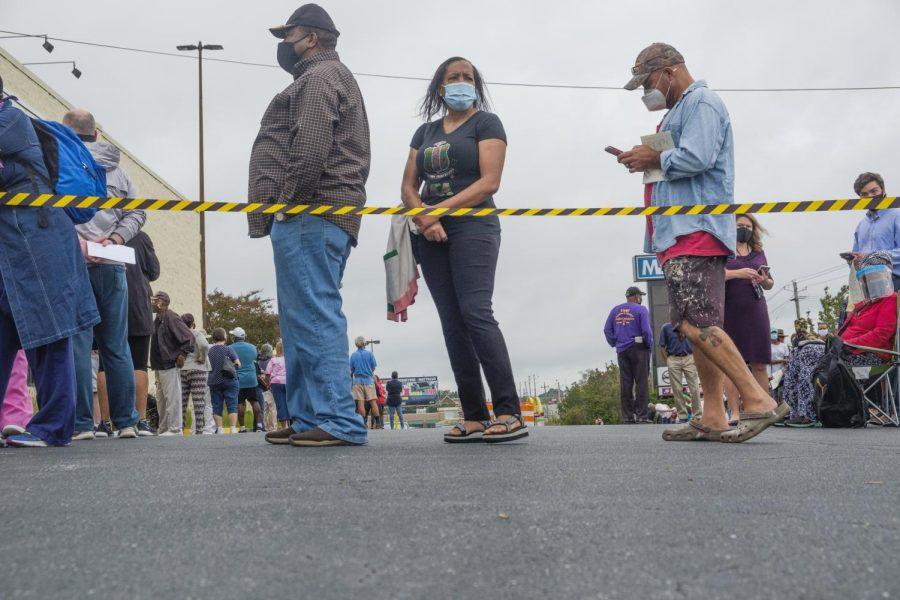
Caption
Voters wait in line at the Macon-Bibb County Board of Elections during early voting in the 2020 presidential election. A federal judge Wednesday denied a request to block parts of the SB 202 voting law passed in March 2021.
Credit: Grant Blankenship

